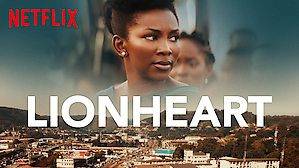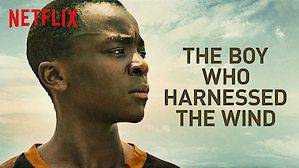Now Streaming: The Flickering Screens Of Netflix And OTTs In Africa

Over time, Netflix has grown from being just an online streaming platform to influencing how people live their lives. A proof of its influential scenario is the phrase ‘Netflix and Chill’ that has gained wide popularity globally.
Contrary to how it sounds and what it meant during the innocent days of 2009, it now has a hidden innuendo. It is now a distinct phrase meaning to watch Netflix with a romantic prospect. This is thanks to a social media-fueled semantic drift!
The name Netflix was formed from a combination of words. The “Net” is derived from the word Internet and “Flix” is a shortened version of the word flicks – a synonym for a movie. Put them together; that is how the name was arrived at.
Unknown to many, Netflix was previously known as Kibble. The Netflix management team earlier had a rough time coming up with a permanent name for the business.
Netflix was founded on August 29, 1997, in California, by Marc Randolph and Reed Hastings. The global streaming giant’s primary business is its subscription-based streaming OTT service which offers online streaming of a library of films and television programs, including those produced in-house.
As of January 2019, Netflix had over 139 million paid subscriptions worldwide, including 58.49 million in the United States, and over 148 million subscriptions total including free trials.
Netflix’s initial business model included DVD sales and rental by mail, but later they abandoned those and focused on the DVD rental business. In 2017, Netflix expanded its business when it introduced streaming media while retaining the DVD and Blu-ray rental service.
The company then started to go international in 2010 with streaming available in Canada, followed by Latin America and the Caribbean. Netflix entered the content-production industry in 2012, debuting its first series Lilyhammer.

Source: Netflix
Netflix is undoubtedly a force to reckon with in the streaming industry. The platform has seen tremendous growth over the years expanding to almost all countries across the world. The video streaming platform’s aggressive expansion has made it the leading service for streaming or on-demand television currently present in 190 countries.
What’s Streaming In Africa…
Close to 20 years after its inception, the renowned media and entertainment platform entered into the African market. The subscription-based streaming service was launched in almost all parts of the world in 2016.
In Africa, they strategically chose South Africa as their maiden point, to serve as an access point to the entire African continent. As at October 2018, two years after it entered the South African market, it was estimated that Netflix had between 300,000 and 400,000 subscribers. This is despite the standard package cost of USD 7 monthly being a bit high for most South Africans.
In a bid to boost its growth in the Cyril Ramaphosa-led country, the company last year converted its pricing to rand as opposed to dollars which
Reportedly, Netflix did set its eyes on Nigeria’s film industry popularly known as Nollywood, a few years back. Nollywood is arguably the second largest movie industry in the world in terms of film output.
Distribution of Nollywood movies on Netflix started around 2015. It was at this time when the American giant bought the rights of blockbusters such as Kunle Afolayan’s ‘October 1st’ and Biyi Bandele’s ‘Fifty.’ amongst others.
During the Toronto International Film Festival 2018, Netflix made known that they have acquired worldwide exclusive distribution rights for Nollywood star, Genevieve Nnaji’s debut film as director – the comedy ‘Lionheart.’ The film marked the first Netflix original film from Nigeria.
In an interview with Variety, Netflix’s director of international original films, Funa Maduka, said “Africa is birthplace to one of the oldest storytelling traditions in the world. It also has a rich cinematic history. The talent is here, and we want to present ourselves as an option as they choose the best path to connect their stories with audiences.”

In a strategy to penetrate the vast African continent, the global streaming giant revealed plans to order original series from Africa in 2019 to add to its ever-increasing list.
At a conference in London last year, Erik Barmack, Netflix’s vice president of international originals, revealed the company is “in the process of looking at opportunities in Africa” and will “definitely” commission series from Africa in 2019.
Nine months after its African launch, Netflix deployed a dedicated server in Nigeria to ease the difficulties of content delivery for its local users.
The streaming giant injected a USD 8 Bn original production budget into Nollywood. The Nigerian film industry makes approximately 2,000 productions every year, and over time, it has improved on the quality of its production. The move to infuse finances into the Nigerian film industry is part of Netflix’s plans to diversify its content library to suit the global audience.
The step taken by the streaming platform came in handy for local creators in Africa, who have had difficulty funding their projects.
Are Local Industry Players Threatened?
Netflix’s originals will be competing for viewers with MultiChoice, the South African cable TV provider, and iROKOtv which is known as “the Netflix of Africa,” which is also the first major streaming service to offer Nollywood content.
South Africa’s Naspers, which already dominates the TV market, deepened its presence by launching ShowMax; an on-demand video service as a preemptive tactic against Netflix ahead of its African launch.
Jason Njoku, CEO and founder of iROKOtv on his blog earlier explained why Netflix and iROKO are on different sides of the VOD coin. iROKO has always been known for being “the home of Nollywood.” He further revealed that 55 percent of iROKO’s subscribers are based in the US and UK which he says is “Netflix’s backyard.” He attributes the large viewership from the UK and US to “the fact that both iROKO and Netflix offer different types of content.”
Njoku further says that despite how refined Netflix is, “Africa is a little different.” He says that Netflix’s Nigeria presence will have “zero impact on iROKO.”
“Considering we are one of the biggest actual producers of Nollywood, I don’t see that changing anytime soon. And with the apparent collapse of the DVD market, this only makes us stronger.”
In a separate talk, the iROKOtv boss and Buni.tv CEO Marie Lora Mungai reiterated that Netflix would have “little impact” on their business.
“African VOD users overwhelmingly prefer Nollywood content, and Netflix offers almost no Nollywood,” Njoku said, noting iROKO is the largest licensor and distributor of Nollywood in the world. “Netflix in Nigeria will likely be more of a 1 percent product: too expensive for the average person due to data costs.”
Not A Cakewalk, Though…
Although there has been immense growth in smartphones and internet penetration across many African countries, more considerable investments need to be done in order to produce a significant impact with regard to VOD streaming.
To date, not many Africans have access to robust internet, which is why accessing films via piracy or local screening venues will continue to be rampant as it is the cheapest and most accessible option for a larger percentage of Africans who are thirsty for content.
Keeping in mind that Netflix works with fast and reliable internet of at least 5Mbps to stream in HD and 25Mbps to stream in Ultra HD, it is going to be a long haul for the giant streaming platform as deficiencies on this front will lead to poor quality video streaming and ‘Netflix and Suffering’ as opposed to ‘Netflix and Chill’.
So, in as much as many people would wish to ‘Netflix and Chill,’ it will remain on many people’s wishlist at least for now. Not until something tangible is done to improve internet availability on the African continent.
According to Internet World Stats, only 35 percent of Africans have access to the internet. Loads of research carried out depict that the continent is the least connected with regards to internet penetration across the globe.
Another major challenge that may get in the way of the new entrant is pricey data charges. For one to be able to access Netflix’s ‘impressive’ collection of films, they need to have internet access (reliable), they are required to purchase data bundles/WIFI, and they also have to pay for the monthly subscription.
The cost of data remains unaffordable to many Africans. Unlike in America where Netflix has recorded an enormous success, Africa lacks well-established infrastructure hence the costly data plans.
UK-based broadband research firm Cable just released findings of their research on the cost of data in different countries globally, and the report findings revealed Sub-Saharan Africa as home to four of the five most expensive countries to buy mobile data with countries like Zimbabwe getting a gigabyte of data at USD 75.20.
That said, Netflix may just have to make do with the wealthy elites. For local industry players like iROKOtv, the charge is USD 1.50 monthly on average. For Buni.tv, USD 5.00 is charged for monthly subscription – which is why they have somehow remained afloat.
A strategy that has been employed by some African ISP’s to make online streaming affordable is the breaking down of data packages, for instance, the introduction of hourly data packages – say two hours of streaming charged at slightly over a dollar.
This strategy could go a long way in encouraging many Africans who are stuck with the traditional way of accessing content to consider buying the online streaming idea.
Again, the internet remains very slow in most African countries. The infrastructure available is mostly for streaming not-so-long videos. More often than not, you may experience spotty connectivity while streaming a huge clip which has to a great extent affected VOD services hence limiting its traction to a snail’s pace.
The power supply which is a basic necessity for one to watch Netflix movies is still not available in a larger part of Africa. Experts argue that unlike local VOD platforms, Netflix will have a hustle while trying to fit into the African context as “they traditionally don’t modify their platform to adapt to the specificities of local markets.” This is unlike African VOD providers who are already adapting to local preferences and realities.
But all hope is not lost for the
Netflix is getting into a market with existing VOD providers. Some of whom are supported by venture capitalists while several others are connected to Africa’s largest media and telecoms companies. VOD startups like iROKOtv are backed with USD 24 Mn in VC. This even makes it harder for the VOD giant to penetrate the African market.
As the globally recognised brand struggles to gain a market share on the continent, questions linger around whether they will be able to grasp a section of the African market using their streaming model.
As for iROKOtv “It simply couldn’t work,” according to the CEO who says he made a mistake to count on streaming from the start. The platform recently moved its Africa platform away from streaming entirely, shifting to an android file download model.
“Data is too expensive, as is access to reliable broadband across huge swathes of the continent.”
iROKOtv later opted to switch business model to an exclusive mobile-only experience for its African users.

Source: Netflix
But They Are Not Out Of Arrows In Their Quiver…
In a bid to curb this challenge, Netflix confirmed earlier that the company is developing new encoding and compression technology to enable users to stream higher quality at lower bit rates.
The company seems to have a plan as reports indicate that it has developed video compression technology which allows it to deliver shows, movies, and documentaries even over slow connections.
Chief Executive, Reed Hastings, said while announcing the global roll-out at the Consumer Electronics Show in Las Vegas last week; “Our talented engineers are constantly testing to compress more data through more advanced encoding,” he said. “The goal is to deliver data so fast and well on any device in any broadband condition.”
Boasting USD 4 Bn in revenue and almost 2,000 productions every year, Nollywood films are largely hawked on the streets as pirated copies for just a few dollars.
Changing the distribution model has become challenging for local startups as well as Nollywood as cinemas are few and not widely appreciated in Africa while the streaming model has not yet picked up owing to the costly data, pricey subscription charges and poor internet connection.
While online distribution has proven not to be an option for the distribution of content by local industry players, the case might be different for Netflix, who have for a long time been know for disseminating content online. Who knows, they may succeed in maneuvering their way to grasp the African elites and the middle-class.
But again, with Africa’s wanting ICT grid and sheer enormity, it’s going to be an uphill task before Netflix utilises its widely-touted influence. The California-based company may be faced with some tough decisions around its model which may push them to compromise, and experts say they may be forced to come up with custom-made distribution models if they are to succeed in the African market.
It is, however, still unknown the strategy Netflix is preparing to employ to gain traction in Africa. They could opt to invest in improving Africa’s ICT grid hence leaving ripple effects in the continent’s economy.
Perhaps the on-demand TV streaming platform’s decision would have a substantial positive impact on Africa’s tech scene. Only time will tell whether Netflix’s ingress in Africa will be a turning point for IT in Africa.
Featured Image Courtesy: Giphy

